US version of Aldi Special Buys have made German chain a $A27b American success story
From butt portions to Texas Toast, Aldi’s US stores may look familiar to Aussies, but what they sell is very different – with one particularly odd product.
Chatting away to her husband, frantically stuffing shopping bags, Gertrude could have been in any Australian Aldi store.
“You get the same kind of food as down the road and it tastes just as good but with no labels,” she cheerily told news.com.au.
It all sounds very familiar. But Gertrude isn’t in Australia. She’s 16,000km away at an Aldi in North Bergen, a densely packed suburb of New Jersey hemmed in between wetlands and hillsides around half an hour from New York.
If you think Aussies are gaga about Aldi, wait until you meet the Yanks.
Around 3000 stores dot the United States making it the largest Aldi market outside its German homeland. Australia, in contrast, has a mere 500 Aldis.
Walking into an Aldi in New Jersey feels not unlike walking into an Aldi in Newcastle or Nowra. But there are differences. You won’t find Special Buys stateside, instead they’re called “Aldi Finds” and some of the one-off products might make an Aussie shopper – well used to Aldi’s weird and wonderful products – stop in their tracks.
Some of the everyday products will also be unfamiliar to an Australian.
But perhaps the oddest things about Aldi America is there are actually two Aldis, and one of them you’d never guess came from the same retail lineage at all.
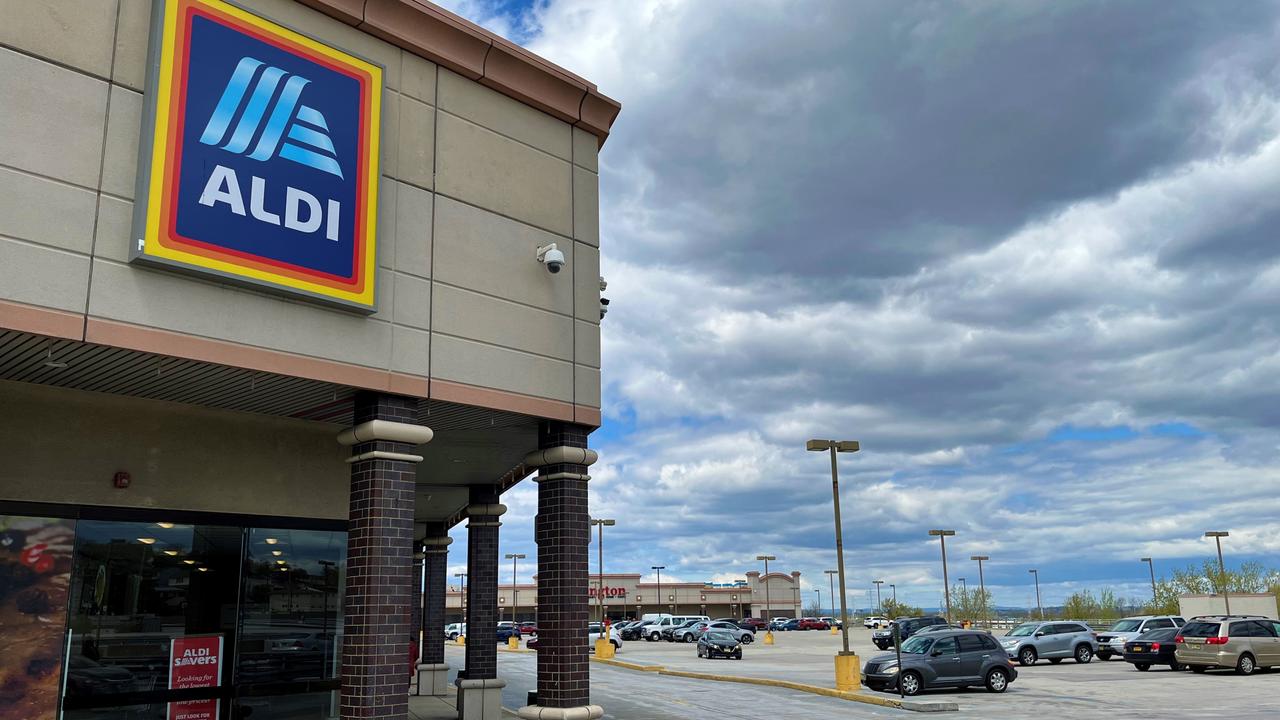
Aldi now one of the US’ biggest supermarkets
Aldi first set up shop in the US in 1976 with a store in the state of Iowa. According to a report by real estate company Jones Lang LaSalle, Aldi has become the fastest growing US food retailer.
In 2021, it opened 88 stores. It’s now the nation’s third biggest supermarket chain, edging out Safeway and behind only Kroger’s and Walmart.
That’s similar to Australia where only Coles and Woolworths are bigger since Aldi overtook IGA.
Its success has not gone unnoticed by the big(ger) boys.
“I never underestimate them,” former Walmart USA Chief Executive Officer Greg Foran told an industry conference in 2019.
“I’ve been competing against Aldi for 20-plus years. They are fierce and they are good,” he was reported as saying by CNN.
Mr Foran should know. Now the boss of Air New Zealand, prior to Walmart he used to run Woolworths’ Australian supermarkets where one eye was always on Aldi.

Many prices cheaper than Walmart
The US prices in Aldi, as you’d expect, are cheap as chips. A price comparison with Walmart showed most prices – although notably not all – were a modicum cheaper at the German discounter.
Mince was $US5.09 ($A7.14) per pound at Aldi compared to Walmart’s $US5.77. You could pick up an avocado for 89 US cents rather than 94 cents at Walmart, and a half gallon of milk came in at $US2.20, a few cents below the $US2.36 at its rival.
The same strategy in Australia of smaller stores, fewer staff, easy to stack shelves, massive barcodes and registers where customers have to pack everything themselves allows Aldi to shave off the pennies.
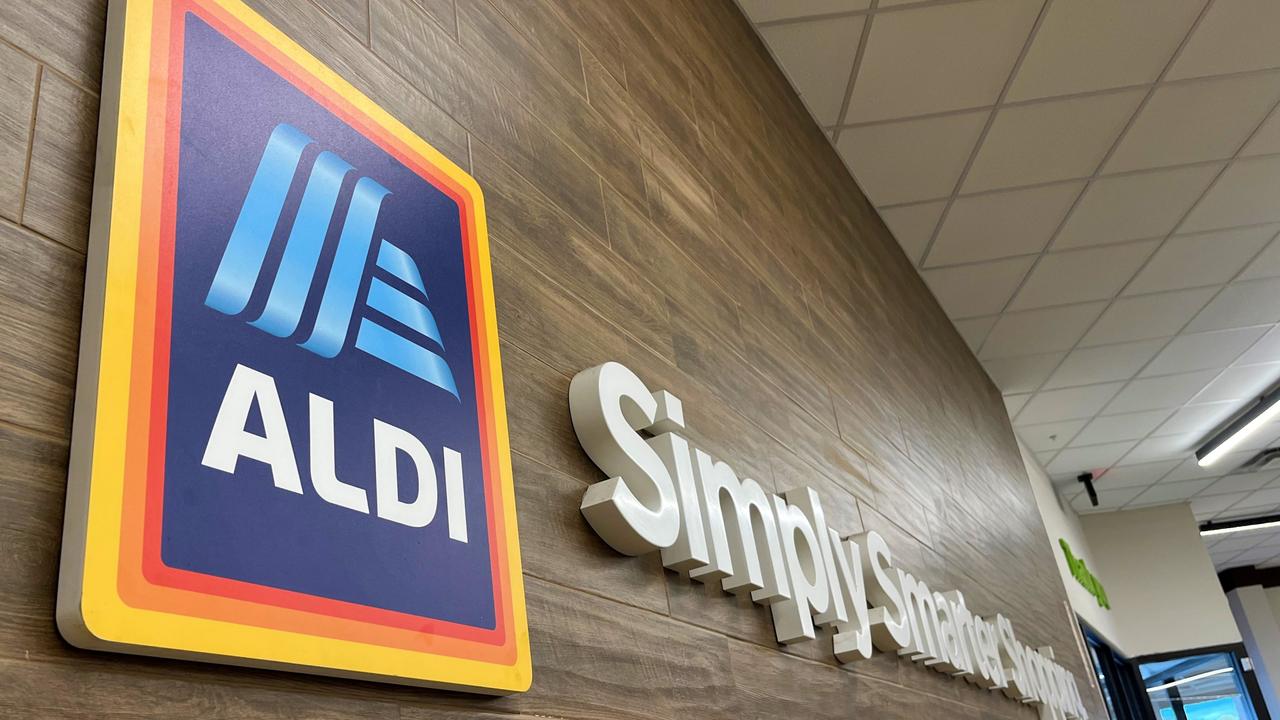
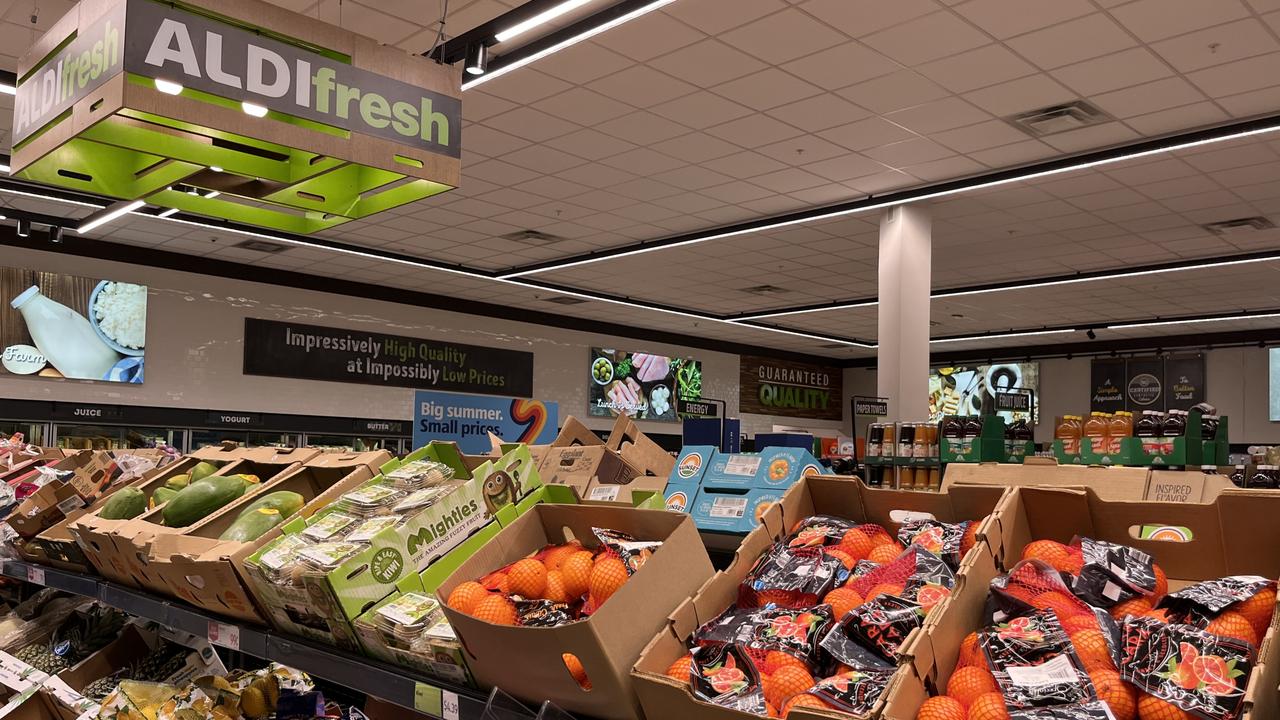
Baffling US Aldi products
Australians would recognise some of the big name brands like Magnum ice cream and Nescafe coffee in the North Bergen branch. They also might spy some familiar Aldi home labels like Moser Roth’s posh chocolate bars.
But when news.com.au visited, many on the products would be baffling to your average Aussie.
“Butt portion” of ham, anyone? Wrapped in foil and as big as a Christmas ham, it somewhat disappointingly is not the voluptuous rear of a pig. Rather, it’s short for the “Boston butt”, a shoulder cut would you believe.
Something called summer sausage immediately stood out. Plump with a shiny, viscous red-brown hue it looked, at first glance, like some kind of elongated blood pudding. It was, however, slightly less offensive, being a fermented pork sausage that doesn’t have to be refrigerated.
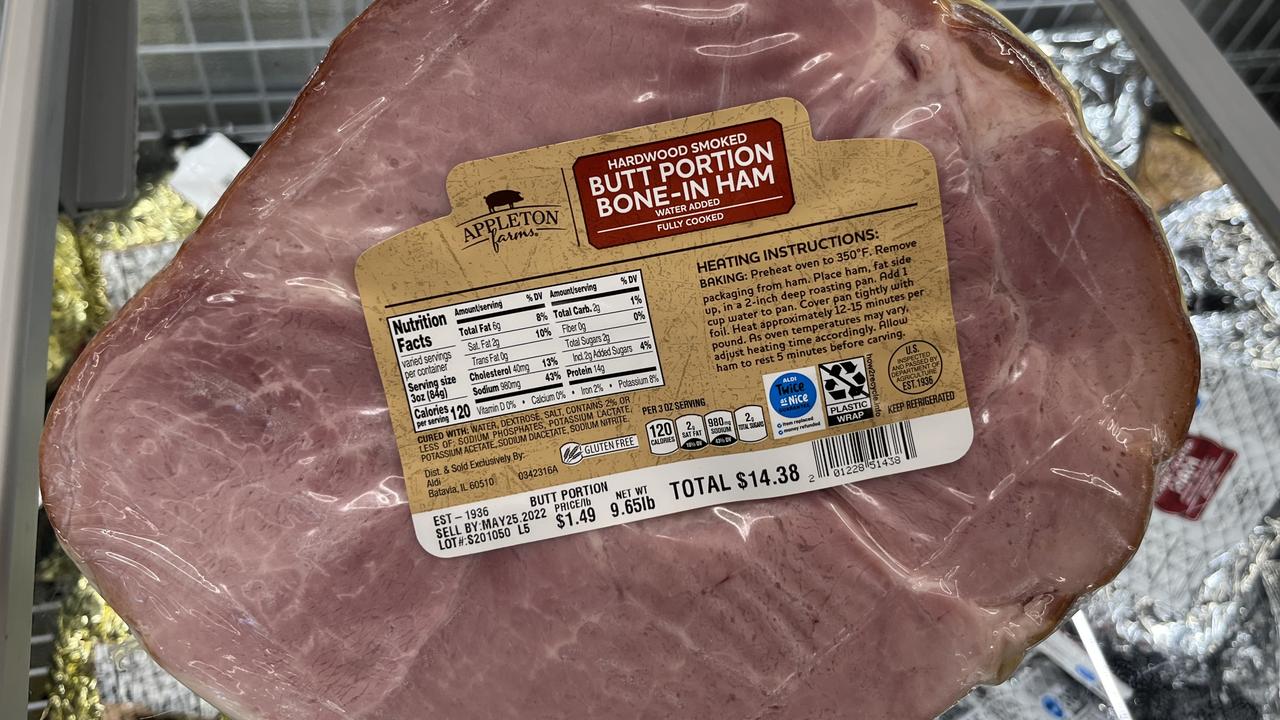
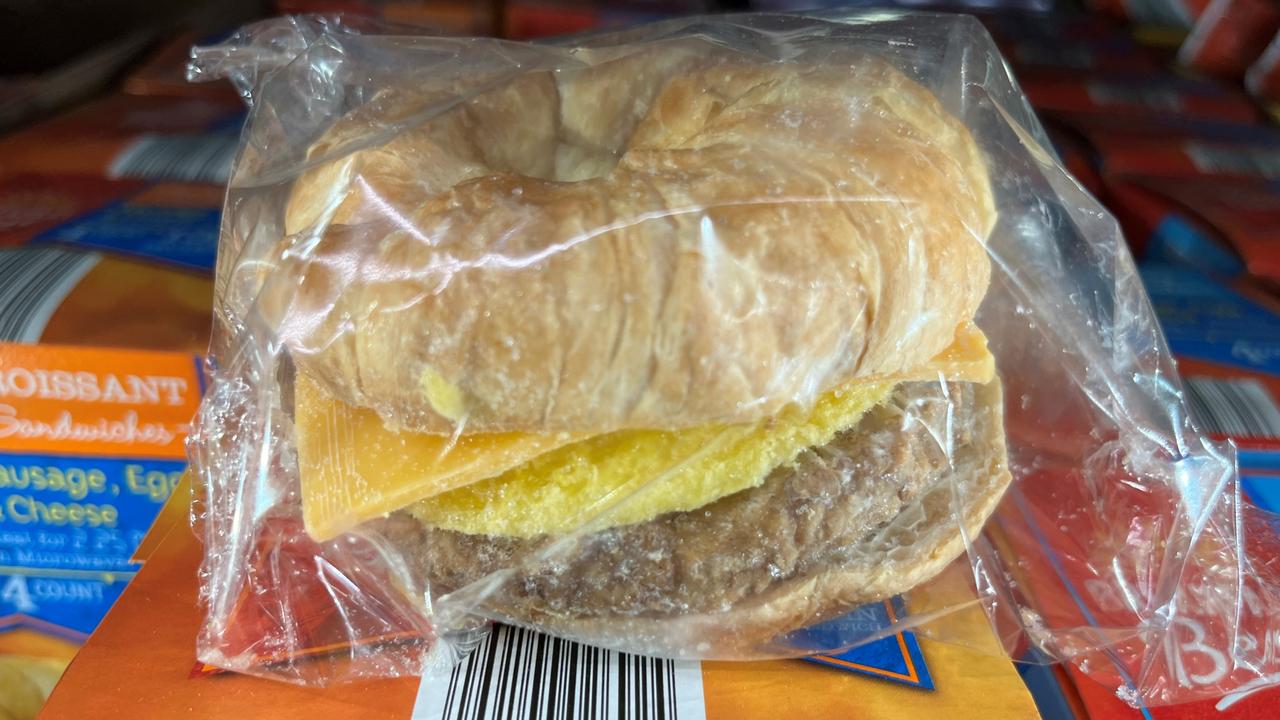
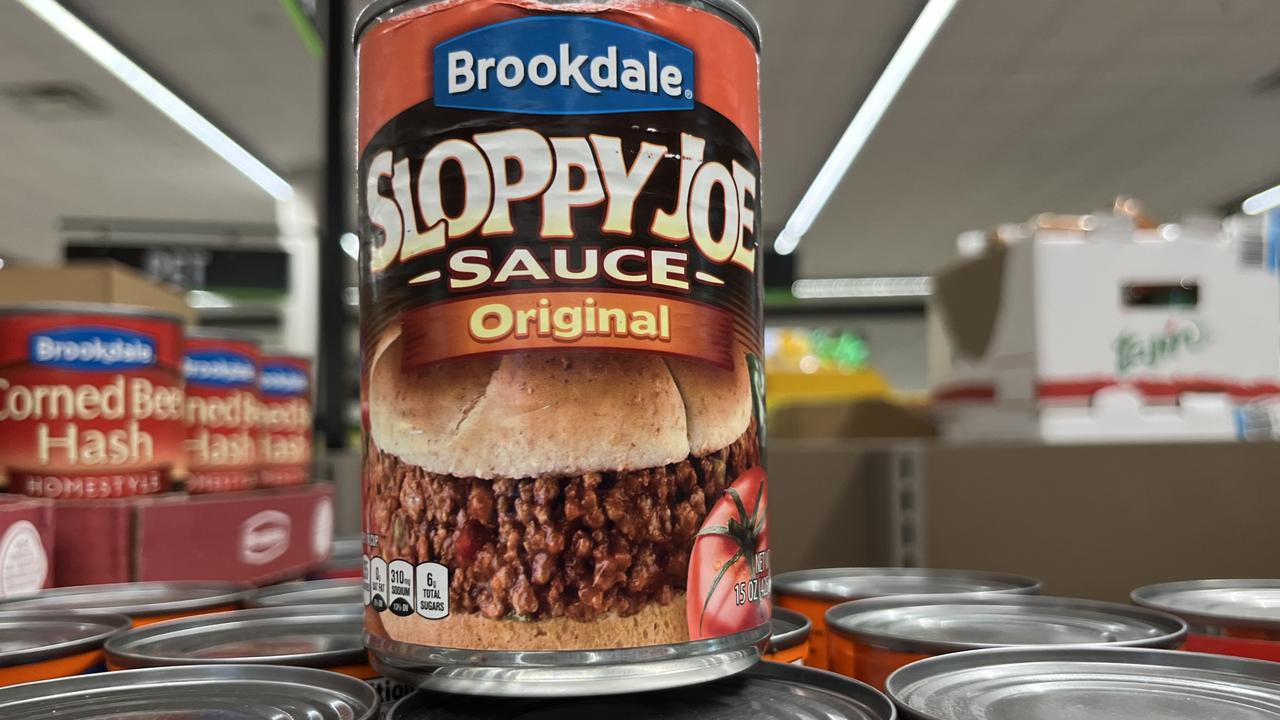
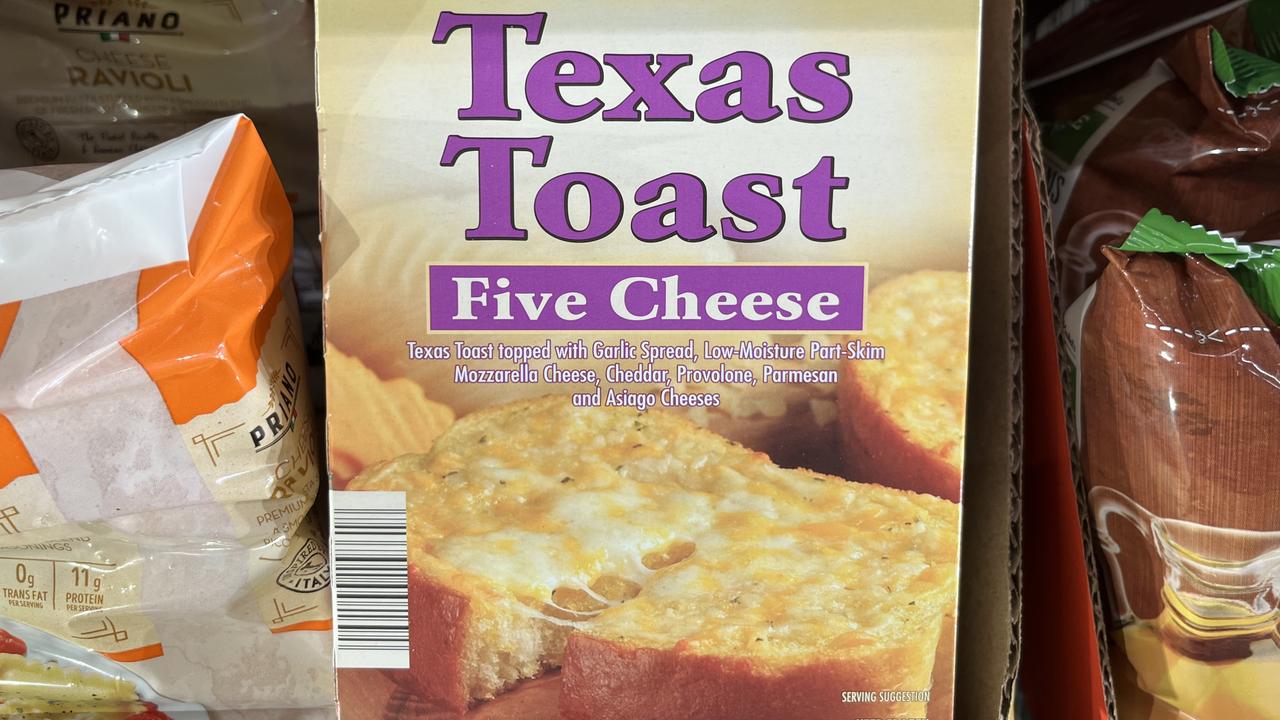
The pizzas were, predictably, enormous; the bread – just like they like it in the States – was full of sugar.
The freezer aisle seemed larger than in Australia. Products like “Texas Toast” – thickly sliced pieces of bread smothered in cheese and garlic – were in abundance. The saddest looking product was a frozen microwavable “breakfast croissant sandwich”. Literally a plastic wrapped, insipid croissant with a slice of cheese, egg and one of those round hamburger-like round snags you only see in Maccas.
Americana was in abundance, from Budweiser bangers to tins of meaty, tomatoey sloppy Joe sauce.
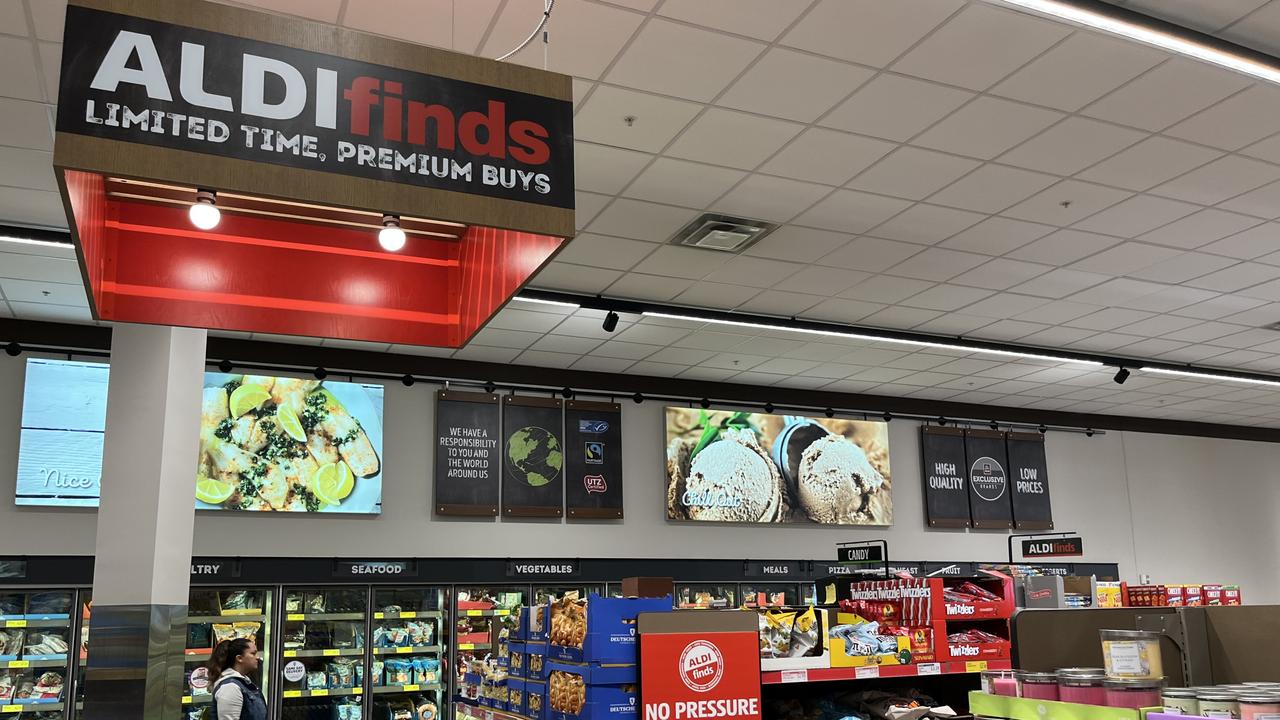
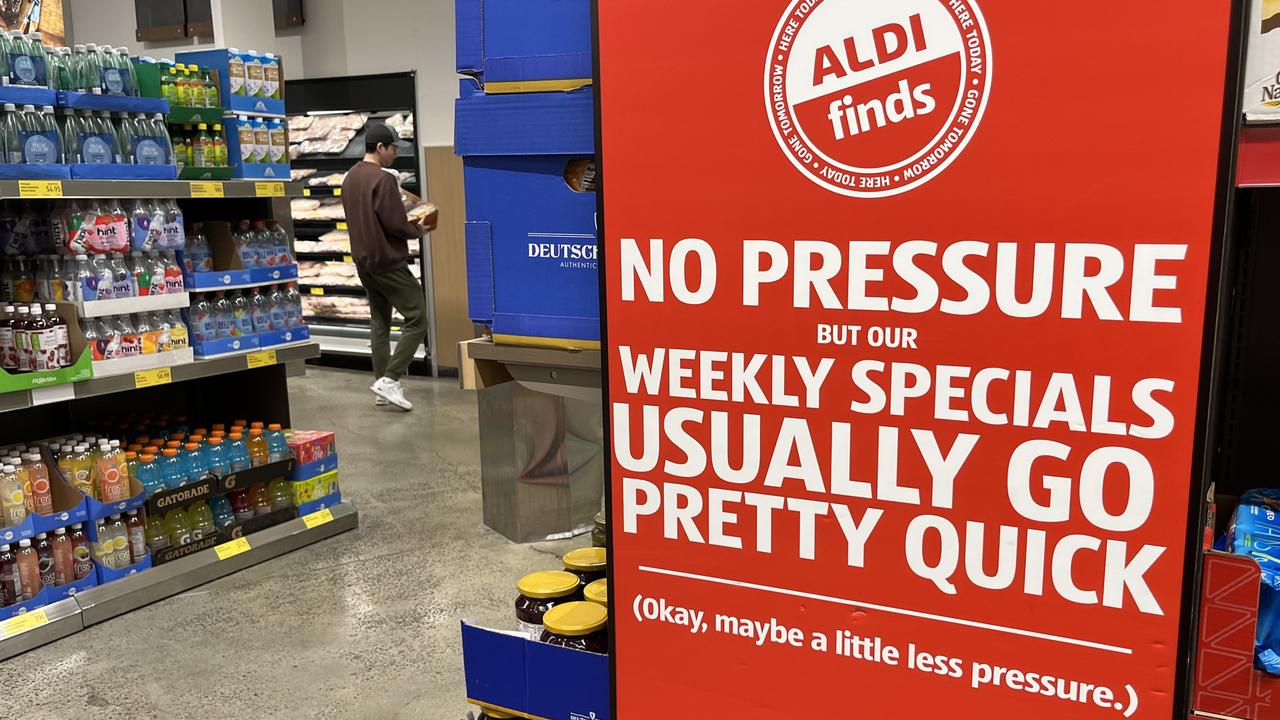
‘Aldi Finds’- the US version of Special Buys
And then there were the Special Buys, or rather the Aldi Finds.
“The Finds are very interesting,” Gertrude told news.com.au.
“You buy it, you love it and then you come back and it’s gone and you can't find it anymore,” she lamented, echoing just about every Aussie Aldi shopper.
All the favourites were here – pot plants, garden gazebos, kids’ toys and those blankets you can wear as clothes.
One customer was unfurling a chindi rug. Made from recycled cloth and offcuts, the bright floor covering was a steal at $US14 ($A20).
For $US80 ($A115), you could get your hands on a towel warmer, an electric bucket that promised “luxuriously” hot towels in six minutes. Or how about a huge golden tea urn? It would bring a touch of razzle dazzle to any community centre.
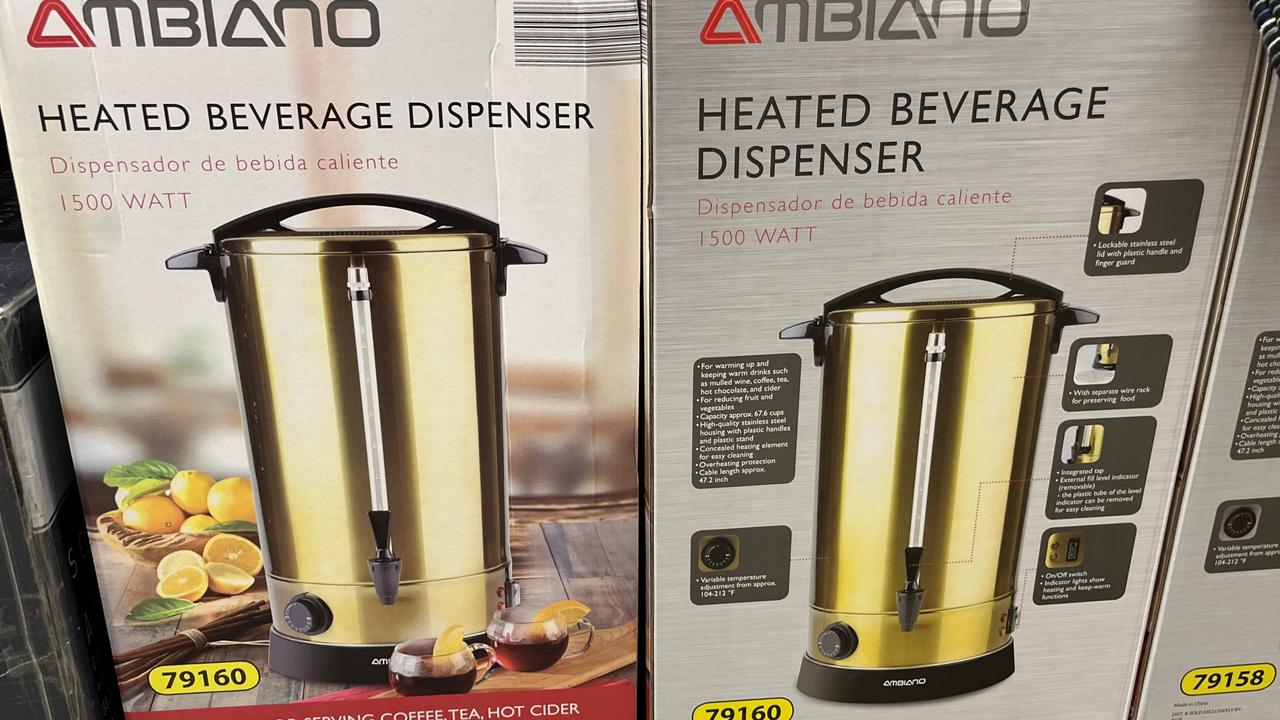
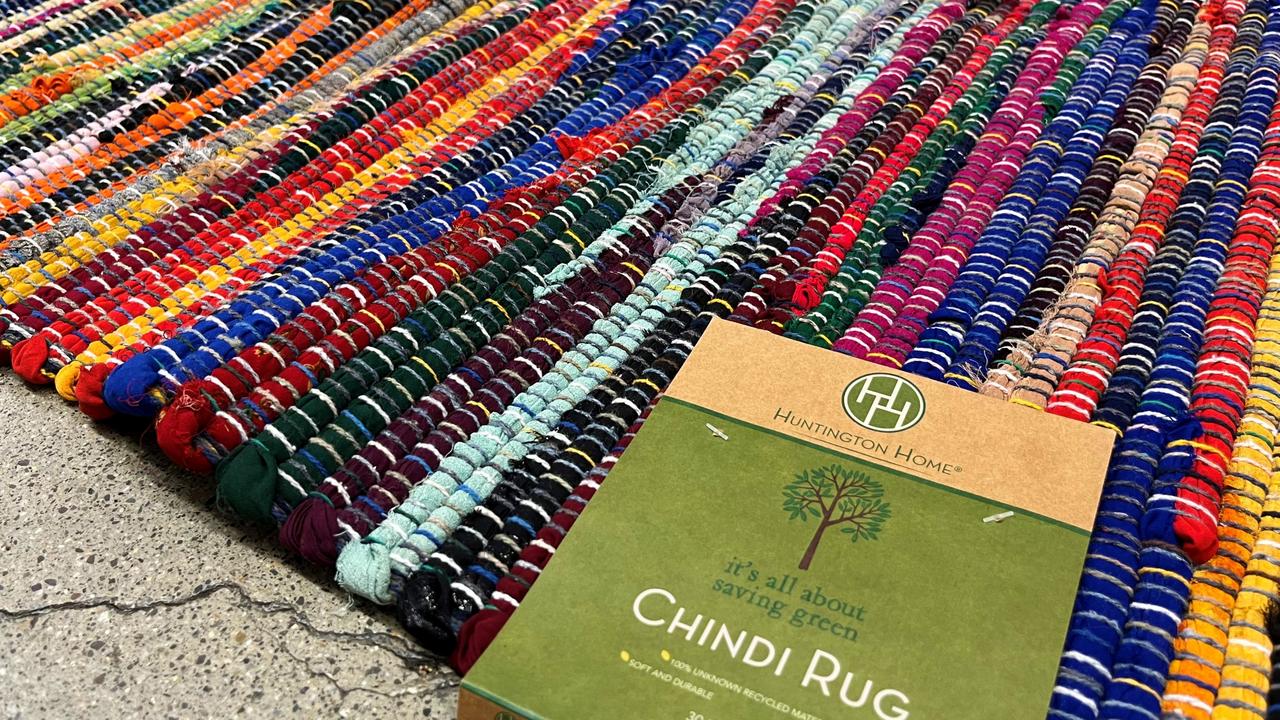
But perhaps the wildest Special Buy, the oddest offer, was the Aldi pyjamas. No, not pyjamas by Aldi – that’s nothing new – but Aldi branded pyjamas.
In sign of just how doolally the Americans are for Aldi, for $US10 devoted shoppers could pick up a “ladies Aldi Fan” pyjama set. This bedroom passion killer, in blue and yellow with a dash of red for a somewhat nautical look, included a top emblazoned in enormous letters with the words “Aldi All Day”. And seemingly Aldi all night too.
Indeed, Aldi merch was in abundance. To pair with your pyjamas was a set of key rings and coin holders with the words “I’m at Aldi … Aldi Time”. It wasn’t clear what that sentence meant.

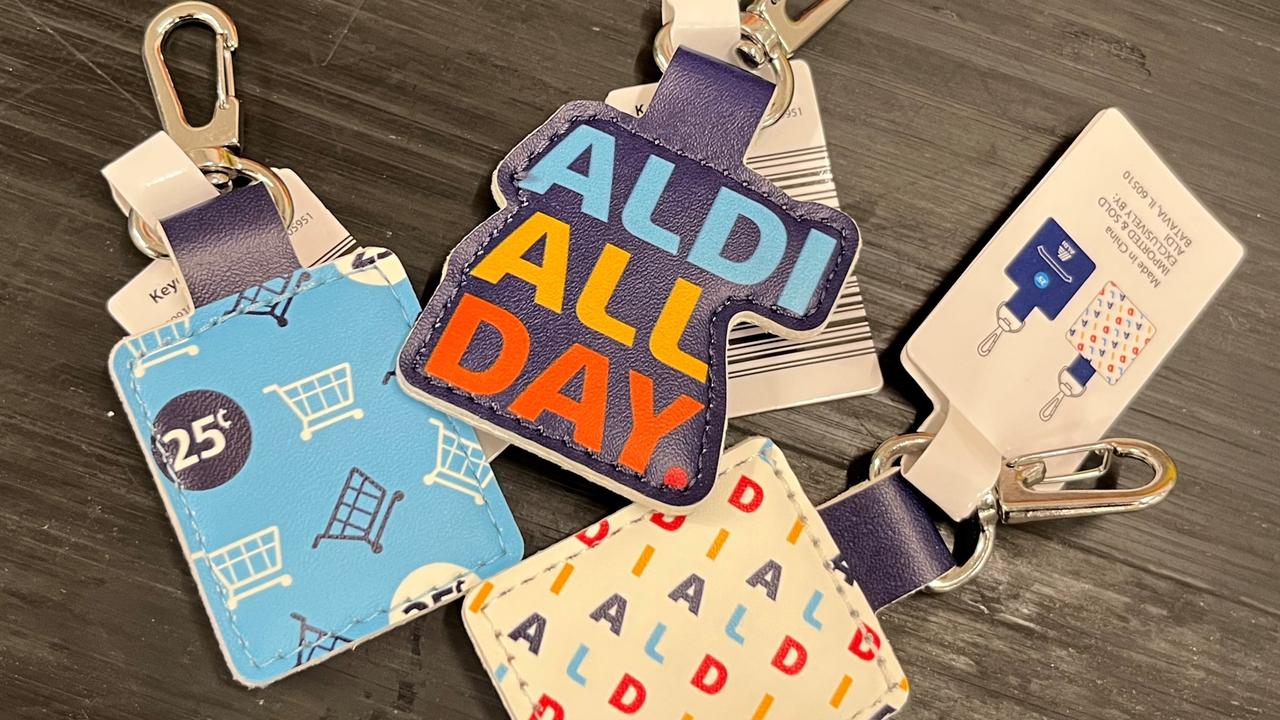
The US’ secret Aldi chain
Aldi doesn’t have it all its own way in the US. The likes of Walmart are not going to give up their number one spot without a fight. And, unlike in Australia where it has carved out an almost unique niche, in America Aldi is fighting against fellow German discounter Lidl. It has much the same game plan although far fewer stores. But it’s busily catching up.
Intriguingly, the US also has something of a secret Aldi which itself is one of the nation’s biggest supermarkets.
Founded in 1967 in California by Joe Coulombe, Trader Joe’s was bought up in 1979.
That both Trader Joe’s and Aldi stores exist alongside one another is due to Aldi’s unique corporate structure.
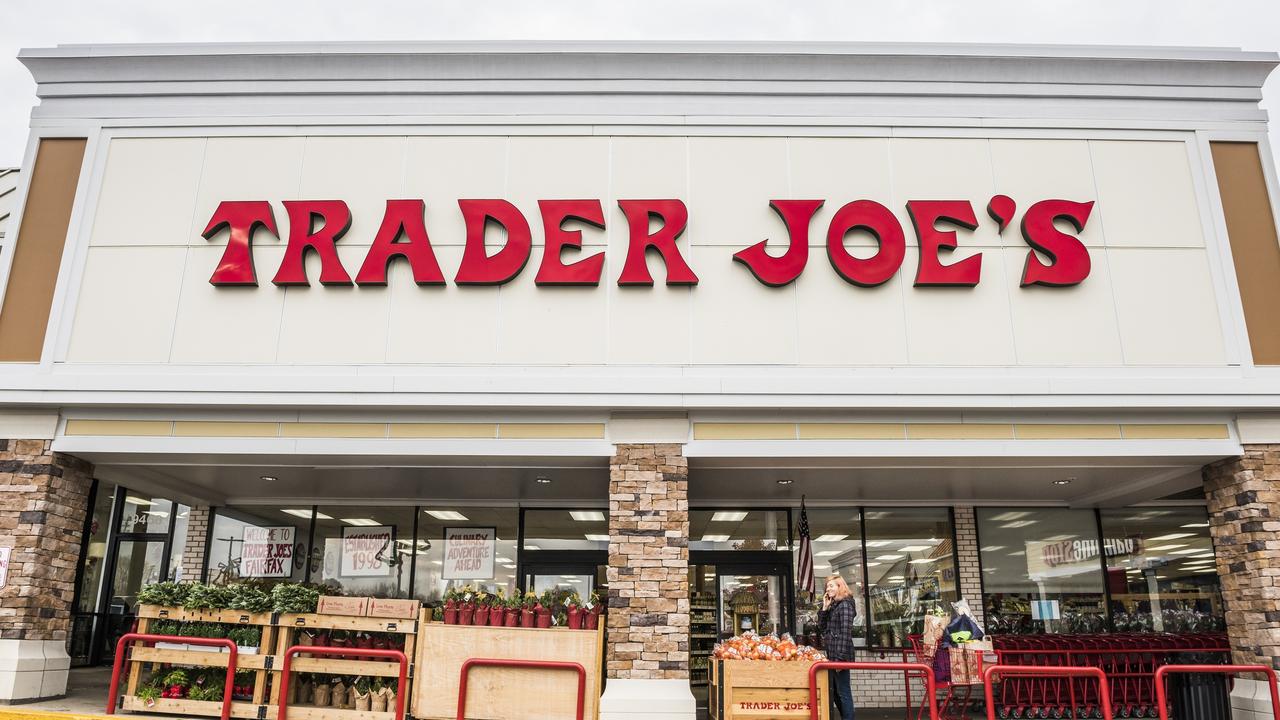
Aldi is in fact two companies, one called Aldi Sud and one Aldi Nord. Founded by brothers Karl and Theo Albrecht in Essen, the company split into two in the 1960s.
That split has continued with different arms of the Albrecht clan still playing a big role in the two Aldis.
Outside of Germany, the Albrechts neatly divided up the world. Aldi Australia, for instance, is part of Aldi Sud.
But in the US, both Aldi Sud and Nord are present and often in the same states and cities. However, there’s no confusion because only Aldi Sud operates Aldi branded stores; Aldi Nord trades as Trader Joe’s.
The two stores are quite different though with Trader Joes usually much larger than an Aldi and with more of a fresh food focus.
But they’re both hugely successful with Aldi Sud’s 2000 stores estimated at having US revenues of around $U18.5 billion ($A26.5 billion) in 2020 and the 500 stores of Aldi Nord’s Trader Joe’s bringing in $US16.5 billion ($A24 billion). That’s around $A50 billion of cash flowing through the tills altogether.
The two are privately owned, however, and don’t publicly declare profits. But the longevity of both brands in the US suggests they’re making a fair bit of money.
Like in Australia, Aldi Sud is not only expanding but also smartening up its stores. It’s managed to coax in customers shopping purely on price, now it wants to appeal to more middle class shoppers. The kind of people who might have gone to Trader Joe’s, perhaps.
If more people like Gertrude can be persuaded to give Aldi a whirl, Walmart down the road in North Bergen might just need to watch out too.





